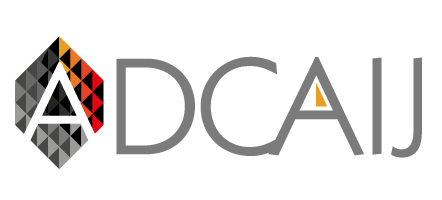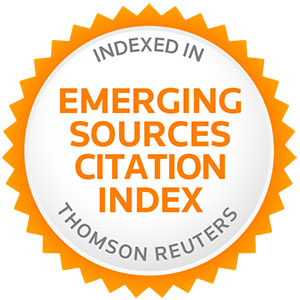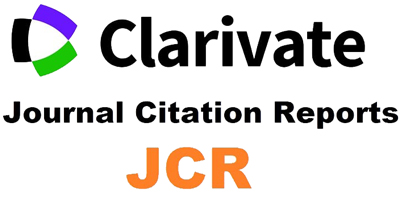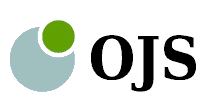Advances in Distributed Computing and Artificial Intelligence Journal
About
Focus and Scope
The Advances in Distributed Computing and Artificial Intelligence Journal is an international journal that will bring together ideas, projects, lessons, etc. associated with distributed computing and artificial intelligence, and their application in different areas.
Nowadays, most computing systems from personal laptops/computers to cluster/grid /cloud computing systems are available for parallel and distributed computing. Distributed computing performs an increasingly important role in modern signal/data processing, information fusion and electronics engineering (e.g. electronic commerce, mobile communications and wireless devices). Particularly, applying artificial intelligence in distributed environments is becoming an element of high added value and economic potential. Research on Artifcial Intelligence and Intelligent Distributed Systems has matured during the last decade and many effective applications are now deployed. Current work is focusing on Generative AI, Transformers, Fuzzy sets, Fuzzy decision making, computing with words, multiple criteria decision making, consensus and many other areas.The artificial intelligence is changing our society. Its application in distributed environments, such as the Internet, electronic commerce, mobile communications, wireless devices, distributed computing, and so on is increasing and is becoming an element of high added value and economic potential, both industrial and research. These technologies are changing constantly as a result of the large research and technical effort being undertaken in both universities and businesses. The exchange of ideas between scientists and technicians from both academic and business areas is essential to facilitate the development of systems that meet the demands of today's society. The technology transfer in this field is still a challenge and for that reason this type of contributions will be specially considered in this journal.
Areas of interest include but are not limited to:
- Intelligent Environments
- Applications of AI (Artificial Intelligence Technology Transfer)
- Generative AI
- Transformers
- Deep Learning, Reinforcement Learning
- Fuzzy systems, Fuzzy Decision Making
- Natural Languaje Processing
- Evolutionary Computation
- Legal aspects of Artificial Intelligence
- Neural Networks
- Smart Cities, Smart Areas
- Distributed Algorithms
- Distributed Applications of ICTs: Trade, Medicine, Industry
- Distributed Databases
- Distributed Architectures
- Distributed Operating Systems
- Multimedia and Distributed Animation Systems
- IoT, IIoT
- Computer Grid
- Cloud Computing
- Edge Computing
- Fog Computing
- Real Time Systems
- Trade and Electronic Business
- Fintech
- Real-Time Systems
- Multiagent Systems
- Languages, Compilers, Planning, Load Balancing
- Mobile and Wireless Systems
- Cybersecurity, Security Intelligent Systems
- Blockchain
- Robotics and Control
- Reasoning Models, Reasoning under Uncertainty
- Planning and Scheduling Tasks
- Temporal and Spatial Reasoning
- Data Analysis
- Big Data
- System support for decision-making
- E-learning, Blended Learning, Intelligent Learning Systems
- Knowledge Management, Knowledge Representation
Peer Review Process
All contributions presented will be analyzed by external raters according to strict criteria of scientific quality. It is the job of the Editorial Board to emit the final decision based on the reports of the reviewers.
- Acknowledgement of reception: Once the contribution has arrived the Journal will acknowledge its arrival and it will be reviewed, the final decision regarding publication corresponding to the Editorial Board.
- Peer review system: Each contribution will be reviewed by at least two members of the scientific comitee, and possibly a third one in the case of discrepancy and also by an expert in methodology.
- Communications to the author/s: Notification of the acceptance, or not, of original articles will be communicated to the main author within a maximum of 120 days as from acknowledgement of the reception of the article.
- Blind review process: In the review process, anonymity of the reviewers will be the norm. External reviewers: When necessary, external evaluators will be asked to review the contribution.
Publication frequency
From volume 12 (2023) onwards, the journal will be published in continuous mode.
Open Access Policy
This journal provides immediate open access to its content on the principle that making research freely available to the public supports a greater global exchange of knowledge.
No Charges for Levied Processing Contributions or for Publication in Open Access Format (APC)
The Journal does not levy charges for processing of articles, nor for editing them or publishing them in open access format [article processing charges (APCs)]
Commitment to Research Submitted by New Authors and Authors from Developing Countries
The Journal ADCAIJ supports the research carried out by authors or research teams from different countries, especially from Latin-America, whose texts are presented in English as the scientific language.
Permission to Self-Archive and Digital Preservation
Authors are authorized to publish on the internet (for example, in institutional repositories or personal web sites) after publication (in no case prior to the review, layout or even in the phase of proof-reading). This measure is designed to foster the reading and citation of contributions and to achieve greater and faster dissemination of the work published (see The Effect of Open Access).
The Journal can be accessed from the two main repositories of the University of Salamanca:
This Journal uses the LOCKSS system to create an archive distributed among the participating libraries, allowing them to create permanent archives of the Journal with a view to preservation and restoration.
Open Access Policy
This Journal offers open access to its content, based on the principle of offer the public free access to research results and helping greater global exchange of knowledge.
Dissemination in Databases
The Journal is committed to the provision of XML metadata or in other specific formats, immediately after publication in «eUSAL Revistas» and before three months have elapsed in order to foster diffusion in databases (Proquest, Ebsco, Elsevier, DOAJ, CrossRef/DOI).
Download Statistics
Following requests from the party(ies) interested, ADCAIJ will provide statistics about the downloads of paper submitted.
Golden Roads to Open Access
Salamanca University Press, will implement Golden Roads to Open Access as of 2011, and it will be possible to access complete texts in PDF format of the Journal ADCAIJ meeting the provisions of Enactment 14/2011, 1st June, concerning Science, Technology and Innovation.
Thematics
Contributions must be original, unpublished and should not have been submitted to «computing»:
- BIC: Computing & Information Technology (U)
- IBIC: Computación e informática (U)
- BISAC: Computers / General (COM000000)
Language, Identification of Text Authorship
Language
Contributions will be published in English.
Text Identification
The texts must always be identified with the following data: Title, Abstract and Key Words (separated by semicolons) in English.
Authority Control
The authors must specify their affiliation:
- Name: Lower case
- Second name: Lower case
- Surname(s): Lower case
- E-mail address: institutional but neither G-mail (generic) nor similar, etc
- ORCID: previously registered in ORCID
- The institution: University or Research Institute
- Country
- Full postal address.
Ethics and Accountability of the Journal
Upon submitting their originals to the Journal, authors must commit to accepting the usual procedures in the scientific community; only originals that have not been published previously and that are not undergoing review by other journals can be accepted. Thus, the originals sent to the Journal will cannot be sent to other journals while they are still undergoing review by our Journal.
Authors must respect international norms concerning authors’ rights to the text, graphics and other materials included in their contributions submitted to the Journal for publication. In turn, the editors, the editorial board and the reviewers of the journal will ensure the integrity of the research is maintained, which in the first instance is the responsibility of the authors, reminding them of the use of software «Turnitin Ephorus» https://moodle2.usal.es/mod/page/view.php?id=260582. Accordingly, authors are requested not to engage in plagiarism or self-plagiarism.
Accountability of the Journal
- The Editorial Board will not be responsible for the ideas and opinions expressed by authors in articles published in the Journal.
- Once an article has been accepted for publication, it is assumed that all the authors have agreed to its diffusion, the right to reproduction in any format belonging to ADCAIJ.
- Once the article has been published, the author will receive a separatum in PDF format from the Journal in which it has been published.
Committee on Publication Ethics (COPE)
This Journal adheres to the principle of transparency and good practices set by the Committee on Publication Ethics (COPE).
How to raise a concern
Anyone who believes that research published by Salamanca University Press has not been carried out in line with these principles should raise their concerns with the relevant editor, or email comunicacion.eusal@usal.es
Concerning © and CC BY-NC-ND rights
Authors publishing in ADCAIJ must agree to accept the following conditions:
The authors conserve the copyright © and cede the publication rights to Salamanca University Press, under the license Creative Commons Attribution-NonCommercial-NoDerivs 4.0 International (CC BY-NC-ND 4.0), which allows third parties the possibility of distributing and exhibiting the article as long as they cite the authorship, it publication in the Journal ADCAIJ, the specific issue, and the pages on which the information appears. Derived works for commercial purposes not authorized by the editorial Board are not permitted.
Authors may engage in other independent and additional contractual agreements for the non-exclusive diffusion of the version of their article published in ADCAIJ as long as:
- It is clearly indicated that the work was published in the Journal ADCAIJ, together with the specific issues and the pages on which the information quoted appears.
The information of the Journal will be transmitted to Sherpa / Romeo, Dulcinea, etc.
Information on the specific contribution of each of the authors to the published articles
The order of signatures/affiliation in the article should reflect the effort and contribution.
Registration funder of articles published
The funding agency(ies) external to University must be indicated, indicating the reference(s) of the project(s) in the framework of which the research that has given rise to the publication of the article has been carried out. This information should be referenced by the authors in the acknowledgements in the article. The corresponding author in charge of submitting the article to «eUSAL Revistas» must include this metadata at the time of the submit in the corresponding section.
Good editorial practices in gender equality
Good practice in gender equality requires that:
- Articles should include, as far as possible, the use of inclusive language;
- Authors should include full names (not just first initials), at least in the metadata;
- Being aware of the protection of personal data, the journal would appreciate information on the sex of the signatory(s) in the metadata, in order to enable the identification of possible gender differences;
















